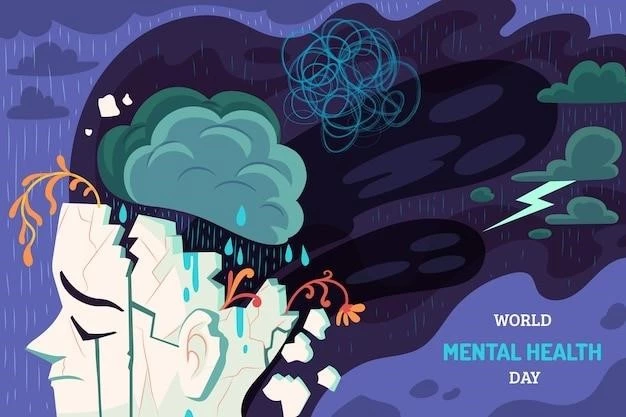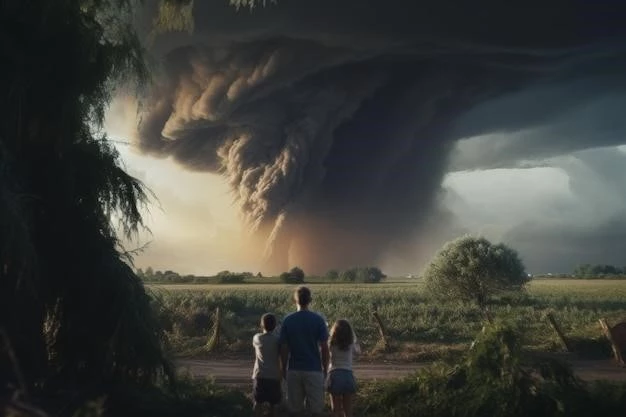Natural disasters are a stark reminder of the power of nature and the fragility of human existence. I’ve experienced firsthand the devastating impact of hurricanes, witnessing the destruction and the emotional toll they take on communities. While the physical damage is undeniable, the psychological consequences are often overlooked. Today, I want to delve into the psychology of natural disasters, exploring the mental health impacts, coping mechanisms, and the importance of resilience in the face of adversity.

The Psychological Impact
The mental health impact of disasters is substantial, with a significant percentage of survivors developing post-traumatic stress disorder (PTSD). It’s important to remember that everyone reacts to trauma differently, and there’s no single “right” way to cope. However, common reactions include:
- Anxiety and Fear: This can manifest as constant worry, difficulty concentrating, and an exaggerated startle response. After Hurricane Harvey, I found myself jumpy and easily startled by even the smallest noises.
- Depression and Sadness: Loss of loved ones, belongings, and a sense of normalcy can lead to feelings of hopelessness, despair, and a loss of interest in activities once enjoyed.
- Anger and Frustration: It’s natural to feel angry at the unfairness of the situation, at the authorities for not doing enough, or even at oneself for not being able to prevent the disaster.
- Guilt and Shame: Survivors may experience guilt for surviving while others didn’t, or shame for their inability to protect themselves or their loved ones.
- Sleep Disturbances: Nightmares, insomnia, and difficulty falling asleep are common. I struggled with nightmares for weeks after Hurricane Katrina, reliving the terrifying moments of the storm.
- Physical Symptoms: Stress can manifest in physical ways, such as headaches, muscle tension, digestive issues, and fatigue.

Coping Mechanisms
While the emotional toll of a disaster can be overwhelming, there are ways to cope and build resilience. Here are some strategies that have helped me and others I’ve known:
- Seek Support: Don’t hesitate to reach out to family, friends, support groups, or mental health professionals. Talking about your experiences and feelings can be incredibly helpful in processing the trauma;
- Practice Self-Care: Prioritize your physical and emotional health by eating nutritious foods, getting enough sleep, exercising regularly, and engaging in activities you enjoy.
- Develop Healthy Coping Skills: Find healthy ways to manage stress, such as meditation, yoga, deep breathing exercises, or spending time in nature.
- Limit Exposure to Triggers: Avoid news coverage or social media posts that trigger distressing memories or emotions.
- Focus on the Present: Practice mindfulness techniques to help you stay grounded in the present moment and avoid dwelling on the past or worrying about the future.
- Find Meaning and Purpose: Helping others in need, volunteering, or engaging in community rebuilding efforts can provide a sense of purpose and hope.
Resilience and Recovery
It’s crucial to remember that recovery from a disaster is a process, not a destination. It’s a journey that involves ups and downs, setbacks, and progress. Here are some key factors that contribute to resilience and recovery:
- Social Support: Strong social connections provide a sense of belonging, offer emotional support, and help individuals feel less isolated in their struggles.
- Meaning and Purpose: Finding meaning in the experience, whether through helping others, rebuilding, or finding new goals, can give individuals a sense of purpose and hope for the future.
- Coping Skills: Having healthy coping mechanisms in place before, during, and after a disaster can help individuals manage stress, regulate emotions, and navigate challenging situations.
- Access to Resources: Having access to mental health services, financial assistance, and other support systems can significantly impact an individual’s ability to cope and recover.
Conclusion
Natural disasters are a complex and multifaceted challenge, impacting not only our physical environment but also our mental well-being. By understanding the psychological impact, practicing coping mechanisms, and fostering resilience, we can navigate these challenges and emerge stronger as individuals and communities. Remember, you are not alone, and help is available. Reach out to others, prioritize self-care, and find meaning in the journey of recovery.










